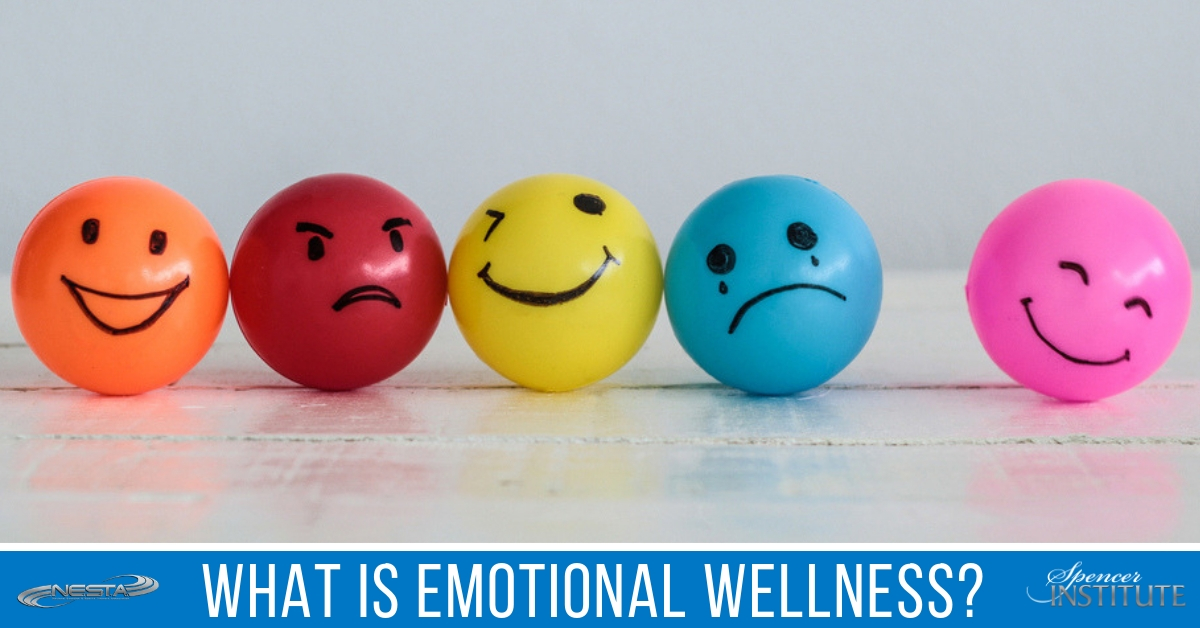 Emotional wellness is your client’s ability to control their stress and to be able to openly express emotions appropriately and comfortably. From the client’s perspective, it is also the ability to both recognize and accept feelings that they have naturally, while not being defeated by any setbacks or failures they perceive.
Emotional wellness is your client’s ability to control their stress and to be able to openly express emotions appropriately and comfortably. From the client’s perspective, it is also the ability to both recognize and accept feelings that they have naturally, while not being defeated by any setbacks or failures they perceive.
Achieving emotional wellness will allow your client to cope with life’s ups and downs effectively. Many studies have reported on the connection between wellness and emotional health.
Anger, for example, is a powerful emotion that has been linked to heart attacks. Other health problems are rooted in emotional stressors. Health conditions, ranging from hives to cancer, may have as their origin, a breakdown in the body’s immune system caused by the body’s response to emotional stressors. The stress coping techniques that you use with your client is typical of the trend toward nonphysical strategies that wellness coaches are using to prevent and treat many health problems before they become full-blown medical concerns.
When we talk about emotional wellness, we are talking about how the client generally feels about their lifestyle and themselves. When your client has reached an optimal state of emotional wellness they will begin to feel that they can be the person they choose to be. Also part of emotional wellness is the comfort of knowing that other emotional components of the client’s wellness are healthy and sound, this includes coping mechanisms for being an effective family member, performing daily activities to the best of their ability, having balance and accepting responsibility for lifestyle choices.
But why exactly is emotional health so vital to the client? Consider that the mind and body tend to act in sync with each other in an incredible way. The human body’s immune system is part of the body’s defense against illness and disease that comes to be from factors and conditions that are both external from our environment or those that developed internally, within our bodies.
The immune system is made up of a variety of mechanical and chemical defenses that help to protect the body from such outside microorganisms, such as allergens and other toxic substances. The human immune system also has defenses for those internal or inner-body factors such as mutating cells or improperly functioning tissues. The human immune system is a functional system rather than an organ itself, and as a result, tends to be prone to the effects of stress when fighting off situations and conditions that create stress.
The biological link between emotions and disease and even death is very strong and clear. Mortality is three times higher in people with a few close relationships over those with numerous relationships, and people with strong support groups have additional protection against life stressors. Death rates are higher for cancer patients with pessimistic attitudes. Illness is more common among people who feel locked into strife-ridden marriages. AIDS patients with healthy psyches seem to do better in their fight against the disease.
One study has demonstrated a system showing how nerve fibers that transmit messages between the brain and lymphocytes go on to create infection and cancer in the body. This same research also found that neurotransmitters, such as epinephrine and norepinephrine, can attack any cells and influence their ability to replicate and destroy invading pathogenic agents.
More specifically, the immune system becomes dysfunctional in stress-related illnesses in three ways:
- under-activity (cancer)
- hyperactivity (asthma)
- misguided activity (lupus)
The immune system seems to be affected by the relationship between the brain and the nervous system. This relationship among the brain, nervous system and the immune response has been the outgrowth from the field of study called psychoneuroimmunology (PNI). Even more, studies continue to show that chronic stress suppresses the body’s ability to initiate an effective immune response.
This suppression is attributed to an increase in corticosteroids, produced during chronic stress. This increasing corticosteroid levels delays and weakens the immune response. In particular, stress has been found to be associated with social disruption (such as leaving home for the first time), psychological depression (such as feeling “down” for a prolonged period of time), or some negative personality attribute (lack of self- confidence).
Your Coaching Career
Becoming a Certified Wellness Coach is the perfect addition for the fitness professional who wants to offer more all-inclusive wellness services to clients. The time is now for you to enjoy this exciting and rewarding career, which offers you personal fulfillment while improving the lives of others.
If you are passionate about helping people and living a fulfilling life, we can help you achieve your dreams right now. The Life Strategies Coaching Certification Course combines the latest advancements in human potential and neuroscience with proven methods of success used by the world’s most productive people.
Spencer Institute certification programs are open to anyone with a desire to learn and help others. There are no prerequisites.
That’s it for now.
Take action!
PS: Click here to see many helpful business/career resources










